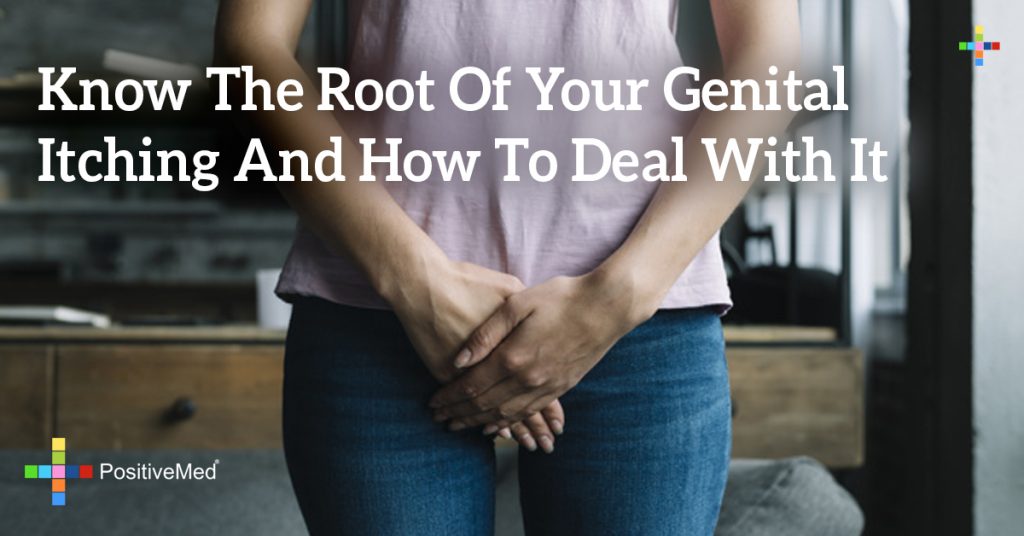
Know the Root of Your Genital Itching and How to Deal With It
[nextpage title=”…”]
We’ve all been in that embarrassing position. You’re standing in a public area, perhaps the grocery store or a restaurant, when you feel the sudden urge to scratch. However, this sensation comes from beneath the underwear. While some may find humor in this predicament, it’s important to understand the root of your problem. Genital itching can stem from a variety of underlying issues, and some of them require quick medical attention. By better understanding your situation, you can relieve the itch and fix what’s wrong.

Herpes
Approximately 16 percent of people ages 14 to 49 have been diagnosed with genital herpes, and more remain undiagnosed. The virus can be transmitted through saliva, semen, and vaginal fluids. If your itching also involves blisters, headache, and inflammation, you may have herpes. It’s especially important for women who plan to become pregnant to get to the bottom of this situation as babies born with herpes can have various problems including:
- Blindness
- Brain damage
- Death
If this is the cause behind itching, there are various medications your doctor can prescribe. You can also use mild cleansers while bathing and wear loose cotton clothing to remain as comfortable as possible.
RELATED ARTICLE: You Probably Have Herpes And You Definitely Don’t Know It. Hidden Signs And Home Remedies For Herpes Treatment
Balantis
The National Health Service UK has reported that around one in 20 males suffer with this problem, and it’s accompanied with itching and swelling of the foreskin or head of the male genital organ. Common in the uncircumcised, balantis can become painful.
Fortunately, it’s not difficult to get to the bottom of this issue as it’s primarily caused by poor hygiene. If you have noticed these symptoms, some measures you can take to calm the symptoms include:
- Taking time to ensure you wash all the soap from genitals while bathing
- Avoiding scented and bar soaps
- Avoiding scented lotions and sprays
Yeast Infection
It’s estimated that 75 percent of women will have a yeast infection at some point in their lives, and 50 percent will have more than one. While they can occur on any part of the body, we typically associate them with the female genital area. This is because of the warm, moist breeding grounds this area provides. Itching and overall soreness in the affected area are common signs a problem exists as well as painful closeness and urination.
[/nextpage] [nextpage title=”…”]
To avoid developing a yeast infection, you should eat a balanced diet, avoid the overuse of antibiotics, and keep the area clean and dry. To avoid spreading potential bacteria, women should also practice wiping from front to back after using the restroom.
While there are various medications on the market to treat yeast infections, a recent study by The Iranian Journal of Nursing and Midwifery Research in December 2010 indicates that there may be a natural remedy worth considering. A cream containing thyme and garlic was compared to a standard antifungal cream. The results showed that both creams were equally effective.
Ingrown Hairs
In a society that’s increasingly focused on physical appearance, it’s no wonder we take so much time to ensure we look our best before going out. That’s also a primary factor why 77 percent of women have shaved their pubic hair with a razor and shaving cream. While the aesthetic purposes of this action are obvious, what’s often not is the ingrown hairs that often results. These painful, itchy bumps are filled with pus and caused by the hair growing back into the skin and not to the surface. You don’t have to cease your trimming, however. There are measures you can take to minimize your chances of developing ingrown hairs including:
- Avoid further shaving, waxing, or plucking of the affected area until the hair is removed
- Exfoliate the skin in the area to encourage the hair to surface
- Use topical treatments on the area to reduce inflammation and irritation
- If the problem persists, your doctor may wish to prescribe an oral antibiotic
It’s worth mentioning that some people are at a higher risk of ingrown hairs including those with thick, curly hair.
Living Life to Its Fullest
We only have one life to live, and living yours with the constant urge to itch at the most inconvenient times can be embarrassing. Not to mention, this symptom could be indicating a serious problem. Whether you are suffering or you know someone who is, it’s important not to hold back on talking about the problem. Knowledge is power, and once you find out exactly what’s causing the itch, you can take the appropriate measures to stop it once and for all.
[/nextpage]





